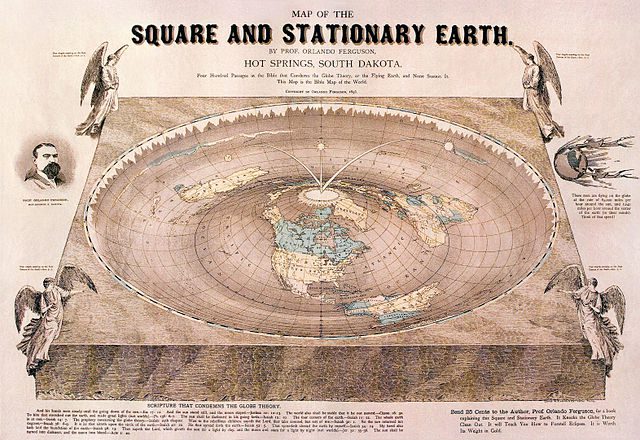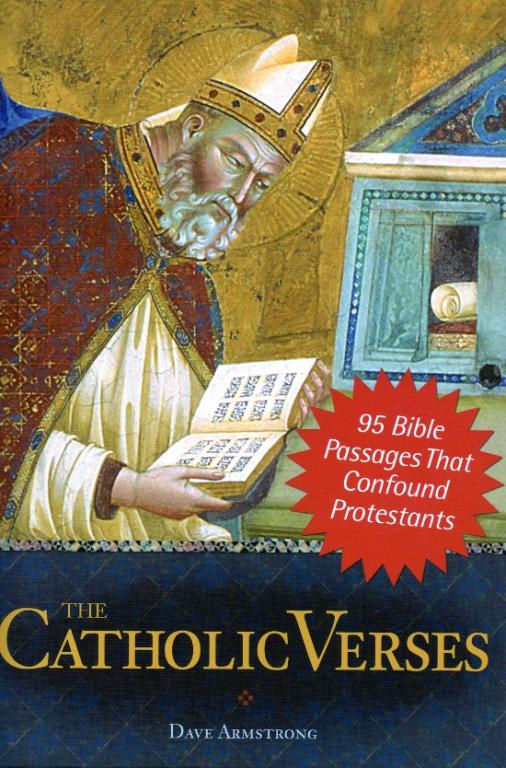Conversion & Apostolic Credentials / Pre-Pauline Evangelism / “Rogue Apostle”? / Falsely Alleged Fears / Universal Atonement / Foolishness of the Cross / Unspiritual Persons

This is an installment of my replies to a series of articles on the epistle to the Romans (written by St. Paul) by Dr. David Madison: an atheist who was a Methodist minister for nine years: with a Ph.D. in Biblical Studies from Boston University. His summary article is called, “Bad Bible Theology: Paul’s Letter to the Romans: Let me count the ways…that Paul got it wrong” (2-26-18). He devotes a paper to each chapter. Unless he repeats himself (a bad habit of his) or descends to sheer biblical skepticism (which I have less than no interest in), I will reply to all.
The introduction is basically a catalogue of rank insults, where he calls St. Paul “a crank” and a “delusional cult fanatic” and “the prototype for Christian crazies” and “an obsessive-compulsive mediocre thinker and bad theologian” and “an embarrassment.” He adds: “how can anyone take this guy seriously?” That about covers the “content” there. Bears poop in the woods, brats throw fits, squirrels walk telephone lines, and the prevalent anti-theist brand of atheists insult Christians. Ho hum. What else is new?
Thus far, I have counter-replied to / answered 28 of Dr. Madison’s critiques, from three different series, without hearing one peep back from him as of yet (25 days’ total time). This certainly doesn’t suggest to me that he is very confident in his opinions. I know he’s still alive and kicking, because I’ve seen him write other posts during this same period.
Dr. Madison’s words will be in blue below.
*****
Dr. Madison calls his critique of Romans chapter 5, “Theology Written Under the Influence of OCD: When you don’t bother to have your work checked…” (3-24-17).
When you don’t bother to have your work checked…
If you’re looking for Bible texts that are red-flag worthy (a good project, I might suggest, for Christian[s] who are wondering, Why am I taking this stuff seriously?) here’s one to put on your list: Galatians 1:11-12, in which the apostle Paul positions himself for maximum credibility:
“For I want you to know, brothers, that the gospel that was proclaimed by me is not of human origin; for I did not receive it from a human source, nor was I taught it, but I received it through a revelation of Jesus Christ.”
So picture this. Paul experienced his dramatic Damascus Road conversion to Christ—he never gives the exact details in his letters—those we find in three fictionalized versions in the Book of Acts.
Why would he have to, if the book of Acts contains two firsthand accounts from him (22:5-16; 26:12-21)? Of course it is completely arbitrary and speculative to say they are “fictionalized versions”. This is more of the atheist silliness when it comes to any Bible text that they either dispute or don’t care for. But no one else is obligated to accept the “Gospel Truth” that some portion is merely a made-up story. I’ve been reading Paul and the rest of the Bible for 42 years now, and am very familiar with his style and personality. These two accounts in Acts sure sound like him to me.
Wouldn’t you think that, after bouncing back from the trauma of hearing Jesus from the sky (which included being struck blind), he would have rushed back to Galilee or Jerusalem to find the disciples? Surely there were apologies to be made for his persecution campaigns, and surely he would be desperate to learn as much as he could about Jesus, whom he had never met.
Yes, it seems like he would, but people don’t always do what we might expect them to do. We have no good reason to doubt the story as told.
But no, Paul bragged to the Galatian Christians about not getting his information from disciples and eyewitnesses. All he knows came from “revelations.”
How is this necessarily to be regarded as “bragging”? If revelations do indeed exist, it’s perfectly plausible. But of course, Dr. Madison denies that revelations exist, because he thinks there is no God to give them. So obviously for him it is all nonsense and fairy tales. He can believe whatever he likes, but the mere fact that he disbelieves something is no proof that it is nonexistent.
What? Let that sink in. Why aren’t Christians massively suspicious about this? Why would you pay any attention whatever to a man who hallucinated his way into this new Jewish cult?
Obviously because we believe in revelations and in the power of Jesus to transform lives. I’ve experienced it myself. A vision is not a hallucination. The first is a real thing; the second is not.
Paul is celebrated as the first great missionary hero, but somehow the faith had already spread to Damascus (Paul was headed there to try to put a stop to it).
This is yet another non-issue. “First great missionary hero” (which Paul was) is logically distinct from “first Christian missionary / missionaries”. Paul’s conversion “is normally dated to AD 33–36” (Wikipedia, “Conversion of Paul the Apostle”), whereas the death of Jesus occurred in about 30 AD. That allowed 3-6 years of missionary activity before Paul became a Christian or evangelist.
There was already outreach to Gentiles during Jesus’ ministry (as I detailed in another reply to Dr. Madison). Jesus gave His disciples the great commission, to “Go therefore and make disciples of all nations” (Mt 28:19), and we also had the seventy disciples (Lk 10:1-20) doing outreach: which plausibly and likely could and would have included Gentiles by this time.
Some early Christian figures, like Hippolytus (c. 170-235) believed that Ananias was one of the seventy. But whether he was or not, there was plenty of time for him to be in Damascus as a Christian, and for him and other Christians to be proclaiming the gospel there. It was only 136 miles from Jerusalem, as the crow flies. Antioch and Cyprus were further away (300 and 254 miles). But we know that missionaries arrived in both places after the scattering (Acts 8:1b, 4) as a result of the persecution of Stephen (which Paul witnessed and approved of: Acts 8:1a):
Acts 11:19-20 (RSV) Now those who were scattered because of the persecution that arose over Stephen traveled as far as Phoeni’cia and Cyprus and Antioch, speaking the word to none except Jews. [20] But there were some of them, men of Cyprus and Cyre’ne, who on coming to Antioch spoke to the Greeks also, preaching the Lord Jesus.
Therefore, if they made it that far before Paul even converted, certainly some would have preached (and/or resided) in Damascus: less than half the distance from Jerusalem, compared to Antioch, and 118 miles closer than Cyprus: both of which were being evangelized before Paul became a Christian.
Even more remarkably, early on there was a congregation in Rome—without Paul’s help. As the faith spread, we have to wonder just what, exactly, the earliest unlettered Christians believed and taught about Jesus. Actually, we have no idea.
All it would take was one zealous missionary Christian, on a boat from Israel to Rome, to start a church there.
It would seem there was no uniform message about Jesus. Paul himself complains about this, e.g., in 2 Corinthians 11:4, “For if someone comes and proclaims another Jesus than the one we proclaimed, or if you receive a different spirit from the one you received, or a different gospel from the one you accepted, you submit to it readily enough.”
That’s right. There are always heretics and false prophets. Jesus predicted it, and Paul expresses the same opinion in his letters. But the existence of counterfeits does not disprove that the authentic apostolic Christian teaching and Divine Person of Jesus exists.
When we read Paul’s self-designation as a rogue apostle, we can suspect that Paul himself was a culprit in spreading fake news about Jesus. His ‘truth’ about Jesus came out of his own head. No one seems to have asked, “Can you verify that?” or “Can you do some fact-checking with the original disciples to make sure you’ve got it right?” Paul didn’t have anyone check his work.
It was later verified as authentic teaching and a legitimate calling from God, in consultation with other apostles (Gal 1:18-19; 2:1-9). This is certainly people “check[ing] his work,” isn’t it? Paul also participated in the Council of Jerusalem, presided over by James and Peter (Acts 15:1-29): which “official” teaching he then proclaimed on his missionary journeys (16:4).
This can hardly be construed as “rogue”: when he participated in the most important Christian council prior to Nicea in 325, and then announced its teachings as binding. It’s just one of the innumerable “Madison myths.” I’ve addressed this issue also with a Protestant: Dialogue with a Calvinist: Was Paul a “Lone Ranger”?
Nor did anyone really care: if he claimed a revelation, that was awesome enough.
This is untrue as well, as the account in Acts records with regard to his immediate post-conversion period:
Acts 9:26-27 And when he had come to Jerusalem he attempted to join the disciples; and they were all afraid of him, for they did not believe that he was a disciple. [27] But Barnabas took him, and brought him to the apostles, and declared to them how on the road he had seen the Lord, who spoke to him, and how at Damascus he had preached boldly in the name of Jesus.
His tortured theology, his personal terrors and OCD, shaped his hallucinated chats with the risen Jesus—and we see this full strength in Romans 5.
Quintessential example of the logical fallacy of “poisoning the well”. Nothing whatsoever in this laundry list is established beyond all reasonable doubt.
It is not hard to read between the lines that Paul was terrified of death, and he was distraught about his own unworthiness before God.
Yes, his abject fear of death is utterly apparent in these two passages (who could possibly doubt it?):
Philippians 1:21-24 For to me to live is Christ, and to die is gain. [22] If it is to be life in the flesh, that means fruitful labor for me. Yet which I shall choose I cannot tell. [23] I am hard pressed between the two. My desire is to depart and be with Christ, for that is far better. [24] But to remain in the flesh is more necessary on your account.
2 Timothy 4:6-8 For I am already on the point of being sacrificed; the time of my departure has come. [7] I have fought the good fight, I have finished the race, I have kept the faith. [8] Henceforth there is laid up for me the crown of righteousness, which the Lord, the righteous judge, will award to me on that Day, and not only to me but also to all who have loved his appearing.
As to his supposed “unworthiness before God”: that is, I submit, a projection of Luther’s continual unease onto Paul (Dr. Madison again bringing false Protestant baggage into his analyses). I cited my friend Al Kresta in my first book, A Biblical Defense of Catholicism, along these lines:
Unlike the modern Evangelical-Protestant revivalistic preaching tradition, the Apostle Paul was not preoccupied with his acceptance as a sinner before a holy and righteous God. That was Luther’s crisis. Protestants have tended to read Paul through the lens of Luther’s experience.
1…. Luther said he feared God but clung to the Apostle Paul. All the constitutive elements of the classic Luther-type experience, however, are missing in both the experience and the thought of the Apostle.
Unlike Luther, Paul was not preoccupied with his guilt, seeking reassurance of a gracious God. He was rather robust of conscience, even given to boasting, untroubled about whether God was gracious or not [Phil. 3:4 ff.; 2 Cor. 10, 11]. He knew God was gracious. He never pleads either with Jews or Gentiles to feel an anguished conscience and then receive release from that anguish in a message of forgiveness. . . . Paul’s burden is not to “bring people under conviction of sin,” as in revival services. Forgiveness is simply a matter of fact.
When Paul speaks of himself as a serious sinner, it is . . . very specifically because . . . he had persecuted the Church and missed God’s new move — opening the covenant community to the Gentiles (1 Cor. 15:9-10; Eph. 3:8; Gal. 1:1316; 1 Tim. 1:13-15). (p. 41)
The wretchedness of humanity was part of the very fabric of reality as Paul perceived it: introduced by Adam, sin was a disease that cursed every human. This was so dangerous because God’s default emotion is wrath; God regards us as his enemies (v. 10). But Paul was sure he knew how to get right with God.
There is original sin, of course, but Protestants distort its extent and nature, and Dr. Madison exaggerates God’s antipathy or hostility to mankind. This is the loving God of the Bible (expressed by Paul / universal atonement):
Romans 5:6 While we were still weak, at the right time Christ died for the ungodly.
Romans 5:15 But the free gift is not like the trespass. For if many died through one man’s trespass [original sin], much more have the grace of God and the free gift in the grace of that one man Jesus Christ abounded for many. (cf. 5:17, 20-21)
Romans 11:32 For God has consigned all men to disobedience, that he may have mercy upon all.
2 Corinthians 5:14-15, 19 For the love of Christ controls us, because we are convinced that one has died for all; therefore all have died. [15] And he died for all, that those who live might live no longer for themselves but for him who for their sake died and was raised.. . .
1 Timothy 2:3-4 This is good, and it is acceptable in the sight of God our Savior, [4] who desires all men to be saved and to come to the knowledge of the truth.
He had it all worked out that wrath flipped to love through the gimmick of Jesus dying (“we have been justified by his blood,” Romans 5:9): “…we will be saved through him from the wrath of God.” The essence of Paul’s theology is found in one of the most famous verses in the letter (v. 8): “But God proves his love for us in that while we still were sinners Christ died for us.” This is so embedded in Christian piety that it’s hard to grasp that this is magical thinking; Romans 5:19 helps bring this to our attention: “For just as by the one man’s disobedience the many were made sinners, so by the one man’s obedience the many will be made righteous.”
For Dr. Madison it is superstitious magic and a “gimmick”; for us Christians it is God’s love expressed in His merciful, gracious plan to save anyone who accepts His free offer of grace and an eternity in heaven in blissful union with Him. As always — when he comments on supernatural and purely spiritual things — , he makes no argument against God’s method of salvation and atonement. He simply assumes that his readers will agree with him that it is absurd; so all he does is mock.
That’s not how reasoned argumentation works, I’m afraid, but it sure is how echo chamber / groupthink clones and sheep atheist forums work. He does the same tired thing in his next paragraph (even bringing in the wonderful word, “Abracadabra” for effect), so I will pass over it.
This scheme should provoke a stunning this-does-not-make-sense moment. Guy P. Harrison has made one of those yes-of-course statements for which he is so well known: “No one seems to know why a god who makes all the rules and answers to no one couldn’t just pardon us and skip the barbaric crucifixion event entirely.” (Christianity in the Light of Science, Loftus, editor, 2016)
Yes, of course He could have done that, had He chosen to. God was under no obligation to be horribly tortured and die for us. He could have simply proclaimed as saved those who chose to obediently follow Him. Any educated Christian knows this, but Guy P. Harrison seems utterly unaware of it for some strange reason. But the passion and crucifixion was in fact how God set it up, in order to show the immensity of His love. We (including atheists) honor war heroes who willingly die for others, or police officers and firefighters (such as those at 9-11) who are willing to risk death for the sake of others, and sometimes actually do die.
Yet when it comes to God doing the same thing for all of us, we so often get mockery and stupefied noncomprehension and lack of gratefulness from atheists. It’s one thing to simply not believe in something; but to mock and lambast what one clearly doesn’t understand in the first place is a bit much to take. But we understand that it comes from people who are (by free choice) lacking in grace and the indwelling of the Holy Spirit. Paul wrote about these things:
Romans 1:21-22 for although they knew God they did not honor him as God or give thanks to him, but they became futile in their thinking and their senseless minds were darkened. [22] Claiming to be wise, they became fools,
1 Corinthians 1:18, 21-25 For the word of the cross is folly to those who are perishing, but to us who are being saved it is the power of God. . . . [21] For since, in the wisdom of God, the world did not know God through wisdom, it pleased God through the folly of what we preach to save those who believe. [22] For Jews demand signs and Greeks seek wisdom, [23] but we preach Christ crucified, a stumbling block to Jews and folly to Gentiles, [24] but to those who are called, both Jews and Greeks, Christ the power of God and the wisdom of God. [25] For the foolishness of God is wiser than men, and the weakness of God is stronger than men.
1 Corinthians 2:11-14, 16 For what person knows a man’s thoughts except the spirit of the man which is in him? So also no one comprehends the thoughts of God except the Spirit of God. [12] Now we have received not the spirit of the world, but the Spirit which is from God, that we might understand the gifts bestowed on us by God. [13] And we impart this in words not taught by human wisdom but taught by the Spirit, interpreting spiritual truths to those who possess the Spirit. [14] The unspiritual man does not receive the gifts of the Spirit of God, for they are folly to him, and he is not able to understand them because they are spiritually discerned. . . . [16] . . . But we have the mind of Christ.
Dr. Madison exhibits all this dumbfounded inability to understand Jesus and God’s glorious plan of salvation in spades, particularly in this ludicrous comment:
One of Richard Carrier’s more acerbic descriptions of Jesus pulls us back to the reality of how much we don’t know about the guy: “…an uneducated rural construction worker from some inglorious town in the middle of nowhere…” (The End of Christianity, Loftus editor, 2011) This was God’s instrument for diverting his wrath from the multitudes of his human enemies?
He expresses these sad, pathetic, pitiful things because he is an apostate. St. Peter wrote about such men:
2 Peter 2:15, 20-21 Forsaking the right way they have gone astray; they have followed the way of Balaam, . . . For if, after they have escaped the defilements of the world through the knowledge of our Lord and Saviour Jesus Christ, they are again entangled in them and overpowered, the last state has become worse for them than the first. For it would have been better for them never to have known the way of righteousness than after knowing it to turn back from the holy commandment delivered to them.
So did St. Paul:
2 Timothy 4:3-4 For the time is coming when people will not endure sound teaching, but having itching ears they will accumulate for themselves teachers to suit their own likings, [4] and will turn away from listening to the truth and wander into myths.
May God have special mercy on Dr. Madison and open his eyes. We Christians know that God wants to do so, but it’s up to . . . Dr. Madison to accept His free offer of grace and salvation. Please Lord!
***
Photo credit: Apostle Saint Paul, by El Greco (1541-1614) [public domain / Wikimedia Commons]
***






















